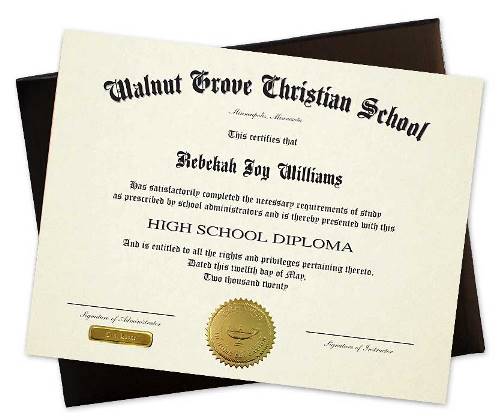
College admissions can feel like a high stakes game of poker…what do you have? What do they want? Just what do colleges want from homeschoolers? Homeschool parents are often left in the dark about how to handle the process. The good news is that it is so much easier these days for homeschool students to navigate the college application process than ever before!
Look for more in-depth discussion of this topic and more in Through the Door: Homeschool to College Success! This book & worktext set will help you and your high school student breeze through the steps of college and scholarship applications, as well as brushing up on study habits and life skills. The worktext includes activities, worksheets, and planning pages, and accompanies the book.
School Profile
The most-forgotten part of record-keeping, this document describes your homeschool, including your philosophy, who teaches, how you grade, and how long you have homeschooled.

Transcripts
We tackle the topic of transcripts in-depth in Through the Door: Homeschool to College Success! The short version is that you should know what the requirements are and have your transcript reflect your student’s work accurately. The college won’t question straight As unless they have reason to…such as the lowest ACT score possible. Those standardized test scores help to back up what the transcript says.
Use a blank transcript sheet as a way to plan out which classes will be taken each year. Use the standard college requirements listed above as a guide. If you know which college or career path your student plans to take, contact them and see exactly what they want so that you can fine-tune those requirements.
Course Descriptions
This is different from the transcript and isn’t required everywhere. However, it’s a good idea to keep a record of the courses as you go through each year. You don’t want to need it senior year and then be scratching your head trying to remember exactly what they did freshman year… List the curriculum and materials used, textbook and ISBN number, grade earned, and instructor (even if it’s you). This helps the college to assess how rigorous the course was since homeschools aren’t standardized like public schools.

Diploma
The diploma, whether a fancy printed document or simple piece of paper, simply states that the student has completed all of the requirements for graduation in that state. The homeschool diploma is admissible for the FAFSA and other financial aid applications. Your student does not need a GED; the homeschool diploma is considerably more respected now that it was two decades ago.
Letters Of Recommendation
As the parent-teacher, you should write a letter of recommendation introducing your teen. This gives you the chance to highlight qualities that you think they should know (such as soft skills or non-academic talents). More weight is given to the letters of recommendation that come from other adults in the student’s life, such as a pastor, coach, scoutmaster, or other adult mentor. Think about who might fill this role, ask them if they’d be willing to write a recommendation, and plan to collect five or six of them. Most colleges require at least three.
Extracurriculars
Colleges want to see how homeschoolers, who tend to have more flexibility, have made use of their opportunity. They expect to see a strong extracurricular section that shows who the student is and where the interests lie. This is a great way to show off leadership or entrepreneurial skills. The extracurricular section will help set your student apart from the rest of the admissions applicants. It helps the admissions counselor to get a clear picture of the student as a person, rather than just another number. Remember quality over quantity. Ten years of scouting, with an Eagle award, looks better than one year doing ten different activities with no progress.
Testing
The ACT and SAT scores help to back up the homeschool transcript. It’s a standardized way of measuring academic capabilities. It’s true that not all students test well; just do your best. If your student requires accommodations, contact the testing board several months in advance to find out how to obtain them.
Essay
After looking at curriculum strength (AP, Honors, or General classes on the transcript), grades, and test scores, admissions counselors will then turn toward the essay to help make a decision for candidates that sit on the fence. A well-written essay can mean the difference between a rejection letter and an acceptance package. It’s true that not every essay will be read, but you have no way of knowing whether your essay will or will not…so put your best effort forth.
- Understand how to write the essay. (See below)
- Brainstorm ideas. Link your personality traits to the essay question, if applicable.
- Be sure to fully answer the question. Answer honestly and to the point, rather than just writing what you think they want to hear.
- Structure the essay, and follow the routine of beginning with an outline, draft, revisions, and final edits.
- Hook the reader. Admissions counselors read oh. so. many. essays. Get them interested at the start!
- Keep it focused on one or two accomplishments.
- PROOFREAD. Seriously, y’all…
- Proofread it again. You don’t want to be denied admission because of faulty punctuation and poor spelling.
Interview
While not necessarily required for admission, it’s a good idea to schedule an interview with any colleges the student is seriously considering, especially those that are competitive. A face-to-face conversation with the admissions counselor can make that positive impression. Practice interviewing with another adult ahead of time.
Dates
None of these pieces matter if you don’t submit your application on time. Make a calendar that shows when each piece of the application is due for each school, and be sure to adhere to your schedule. A good planner can help keep you on track!
—oOo—

